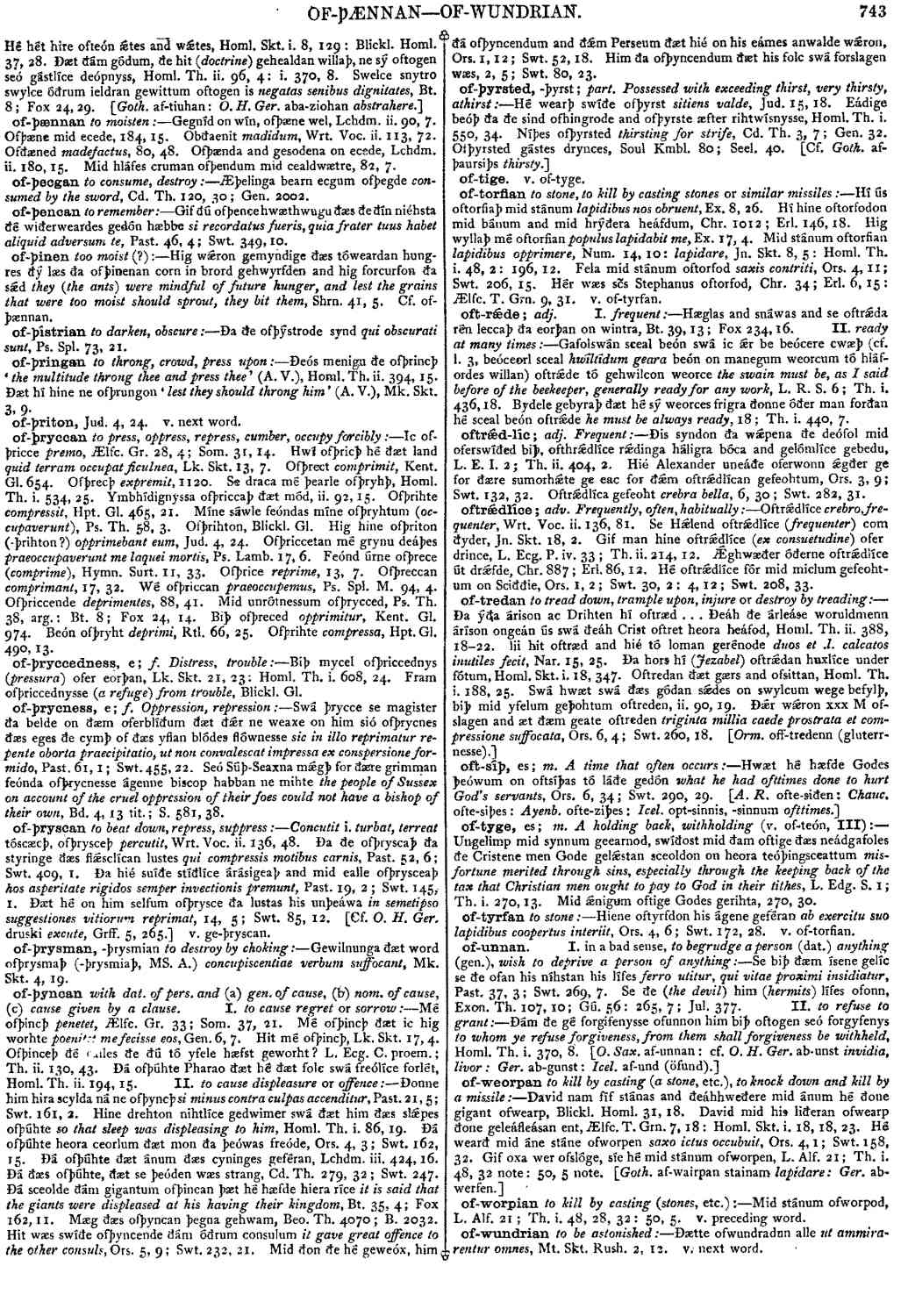of-þyncan
- verb [ weak ]
-
Mé ofþincþ
penetet,
- Ælfc. Gr. 33; Som. 37, 21.
-
Mé ofþincþ ðæt ic hig worhte
poenit t me fecisse eos,
- Gen. 6, 7.
-
Hit mé ofþincþ,
- Lk. Skt. 17, 4.
- Ofþinceþ ðé les ðe ðû tô yfele hæfst geworht? L. Ecg. C. proem. ; Th. ii. 130, 43.
-
Ðá ofþúhte Pharao ðæt hé ðæt folc swá freólíce forlét,
- Homl. Th. ii. 194, 15.
- Ors. 5, 9; Swt. 232, 21.
Bosworth, Joseph. “of-þyncan.” In An Anglo-Saxon Dictionary Online, edited by Thomas Northcote Toller, Christ Sean, and Ondřej Tichy. Prague: Faculty of Arts, Charles University, 2014. https://bosworthtoller.com/24390.
Checked: 0